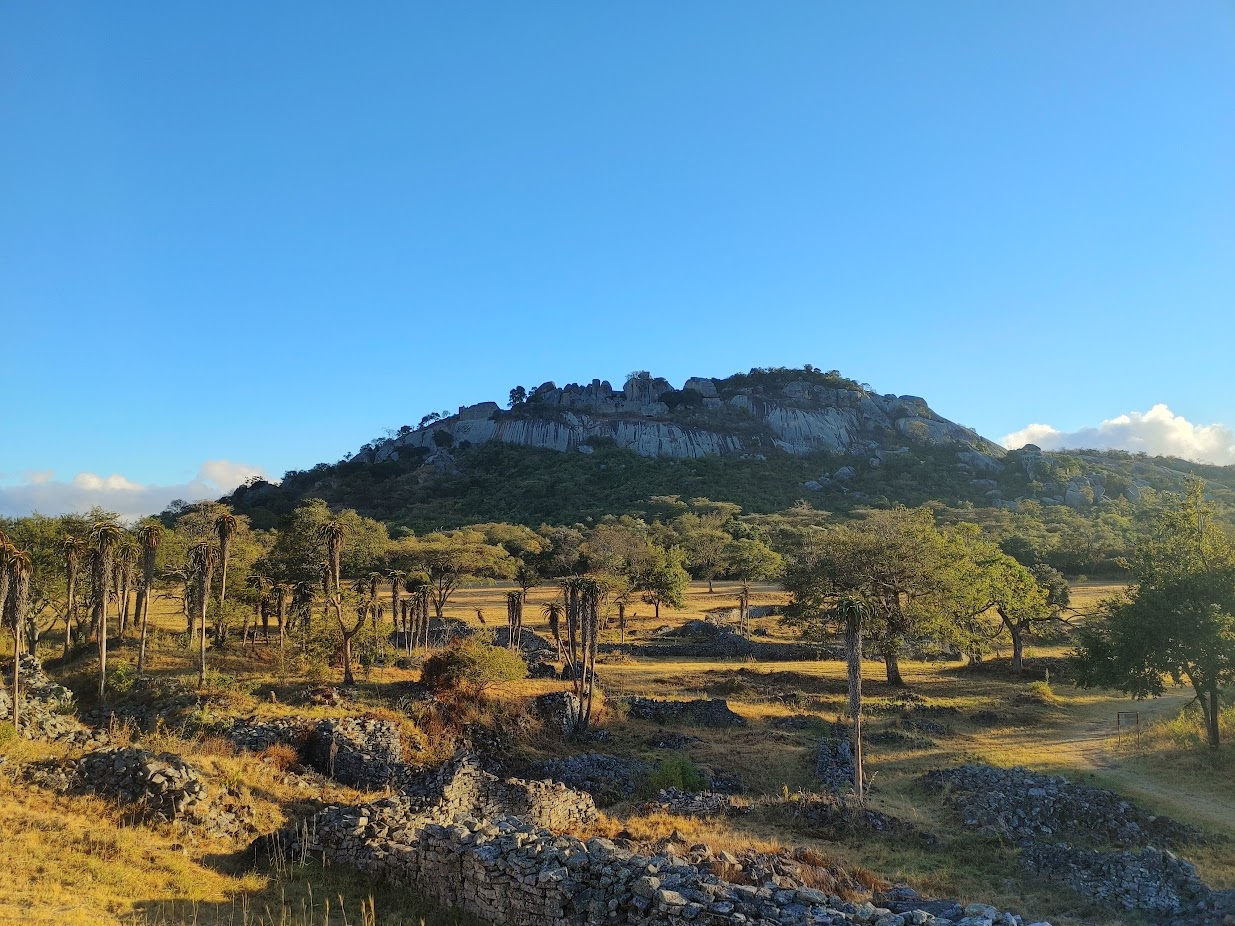
Climate Change in Zimbabwe
Zimbabwe is facing significant challenges from climate change, including recurring droughts, rising temperatures, and unpredictable weather patterns. Agriculture, which is central to the economy, is particularly vulnerable, with crop failures affecting food security and income. Climate change, along with human activity such as deforestation, is also disrupting plant and animal life and important habitats, threatening biodiversity and leading to a loss of vital resources. These challenges make it difficult for communities to have viable and sustainable livelihoods and meet basic needs.
The LINCZ Project

The Locally led Indigenous Nature-based Solutions for Climate Change Adaptation in Zimbabwe (LINCZ) project is led by Mennonite Central Committee in partnership with Global Affairs Canada. The LINCZ project is supporting communities in Binga, Gwanda, and Mwenezi districts as they cope with climate change impacts while also protecting and restoring the natural environment.
Nature-based Solutions
Nature-based solutions (NbS) are ways of addressing societal challenges by protecting, sustainably managing and restoring the natural environment. These actions enable impacted communities to tackle issues like climate change, biodiversity loss, and food insecurity. For example, conservation agriculture techniques such as minimal tillage and soil cover benefit soil biodiversity and health and improve agricultural production and drought tolerance. Other examples include farmer-managed natural regeneration, assisted natural regeneration and reforestation, and improved water management and wetland protection.
Gender Responsive Approaches
Women and girls are especially impacted by climate change and environmental degradation and face barriers to adaptation. The LINCZ project seeks to foster the development of climate-resilient and conflict-sensitive livelihoods, in particular for women and girls, through strengthening skills and capacities in sustainable agricultural production, beekeeping, and management of non-timber forest products.
Partnerships
Meet the Canadian Partners

Mennonite Central Committee (MCC) is a global, nonprofit organization that strives to share God’s love and compassion for all through relief, development and peacebuilding. With local partners at the heart of its work, MCC has been empowering communities to meet local needs and build peace for over 100 years. MCC Canada is working in collaboration with MCC Zimbabwe on the LINCZ project.

Canadian Mennonite University (CMU) is a university located in Winnipeg, Canada, hosting a diverse student body which attends the vibrant campus from all around the world. With a long-standing commitment to collaborative development, conflict resolution, peace, and transformational justice rooted in the Anabaptist tradition, CMU encourages students to integrate academic learning with social responsibility and engage with materials in meaningful ways. CMU is the Canadian research partner for the LINCZ project.
Meet the Zimbabwean Partners

The National University of Science and Technology (NUST) is a dynamic and modern university, established in 1991 by the Zimbabwe Parliament. It offers a stimulating academic environment with English as the teaching language, encouraging both students and staff to explore new ideas in science and technology. Located in the welcoming city of Bulawayo, NUST is a hub for research, building connections with universities across Africa and around the globe. NUST is a research partner for the LINCZ project.

The Global Biodiversity Information Facility (GBIF) is an international network and data platform funded by governments worldwide. Its goal is to give anyone, anywhere, open access to data on all forms of life on Earth. GBIF Zimbabwe is a research partner for the LINCZ project.

GBIF Zimbabwe is housed at Bindura University of Science Education (BUSE), a leader in teaching, research, and community service, focusing on advancing science education in Zimbabwe. The Natural Resources department specializes in wildlife, forests, soil, and water research and gathers data on medicinal plants and non-timber forest products to share globally through GBIF.

The Brethren in Christ Compassionate and Development Services (BIC-CDS) was founded in 2013 as the humanitarian and development arm of the Brethren in Christ Church in Zimbabwe. Its mission is to provide effective, high-quality social services in response to crises and development challenges, reflecting the church’s Christian witness in Zimbabwe. BIC-CDS is implementing the LINCZ project in Gwanda District.

Kulima Mbobumi Training Centre (KMTC) is a private voluntary organization operating in Binga District since 1984. Its main goal is to improve livelihoods and reduce extreme poverty and hunger through agricultural support, including conservation agriculture training, provision of inputs and equipment, and assistance in water, sanitation, and hygiene. KMTC aims to empower subsistence farmers and youth by facilitating access to training and resources, promoting sustainable practices to enhance food production and incomes in the community. KMTC is implementing the LINCZ project in Binga District.

Score Against Poverty (SCORE) is a local, community-based organization registered as a charity in 2020. However, it has been operating as a Trust since 2014. With over a decade of experience, SCORE has developed diverse capacities in areas such as education, food security, climate change, water, sanitation, and hygiene (WASH), humanitarian assistance, clean energy, and gender equality. SCORE focuses on addressing the needs of the most vulnerable groups in the community, including women, men, girls, boys, and people living with disabilities. SCORE is implementing the LINCZ project in Mwenezi District.


 Print This Page
Print This Page